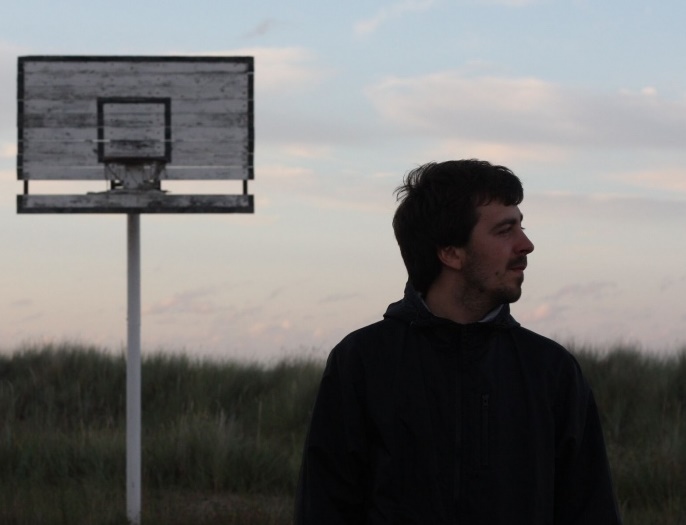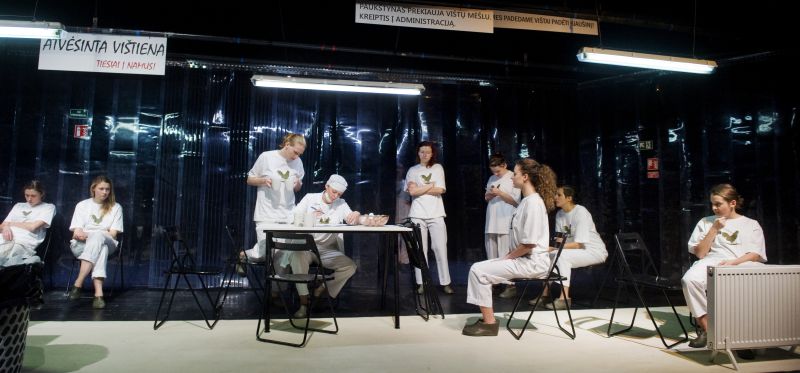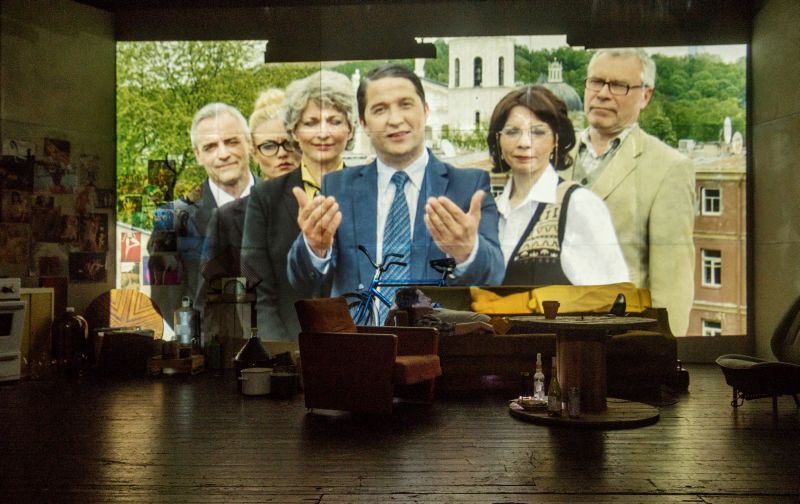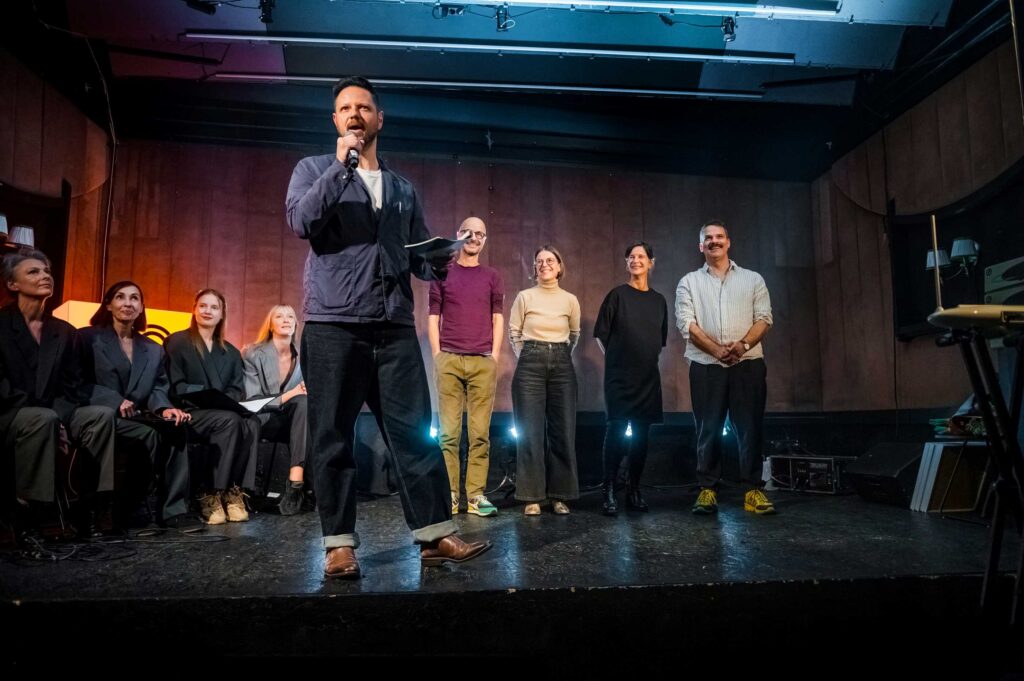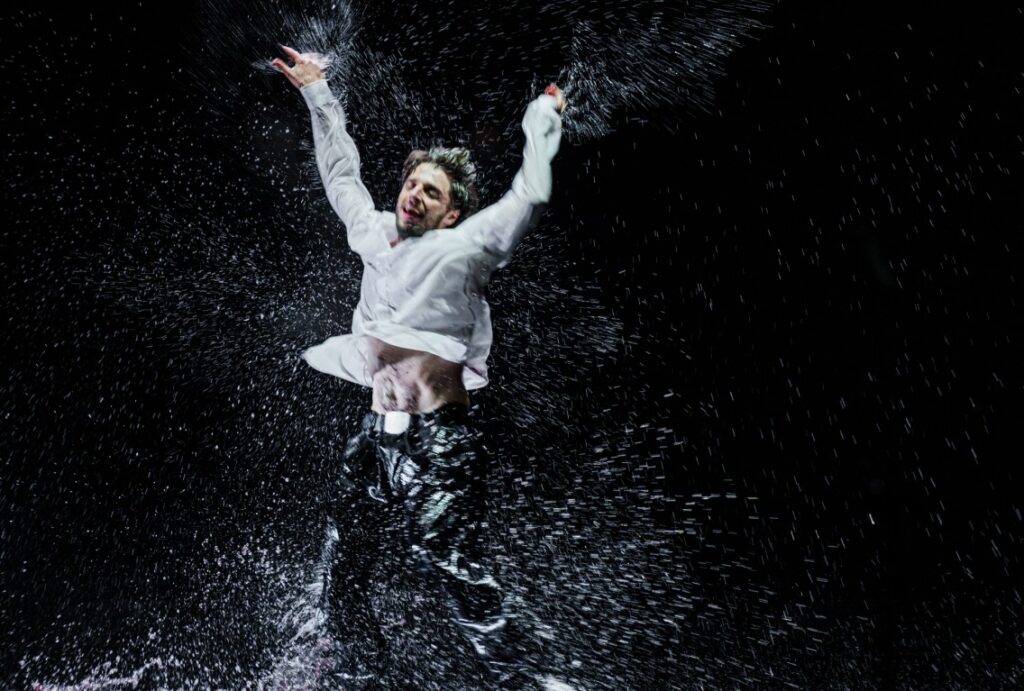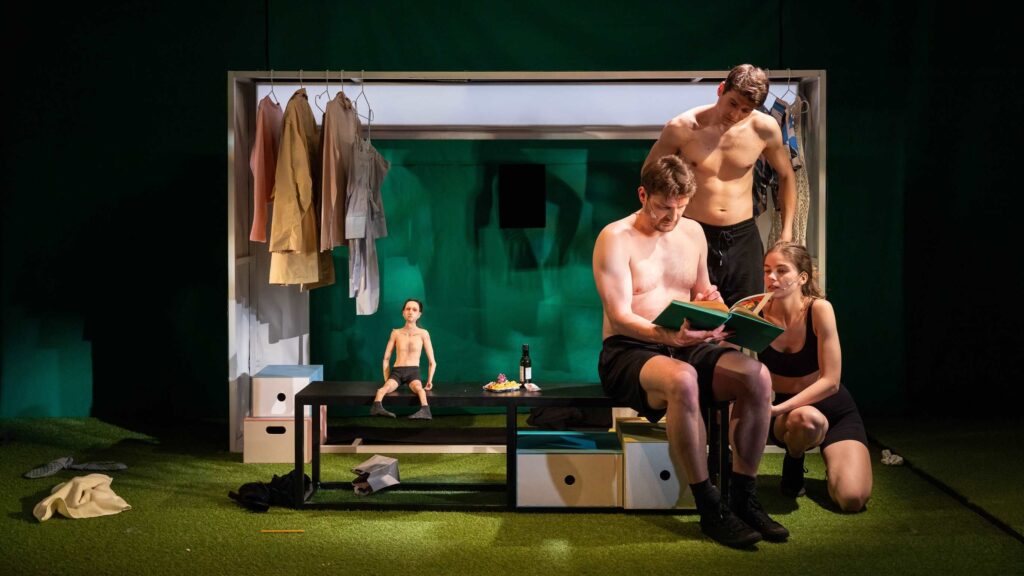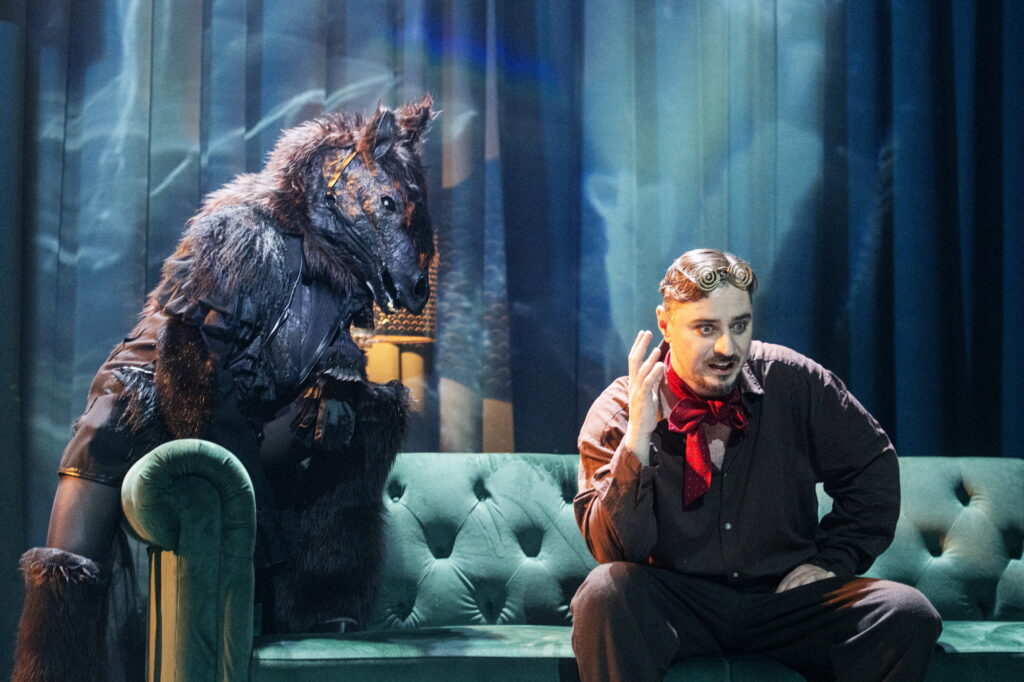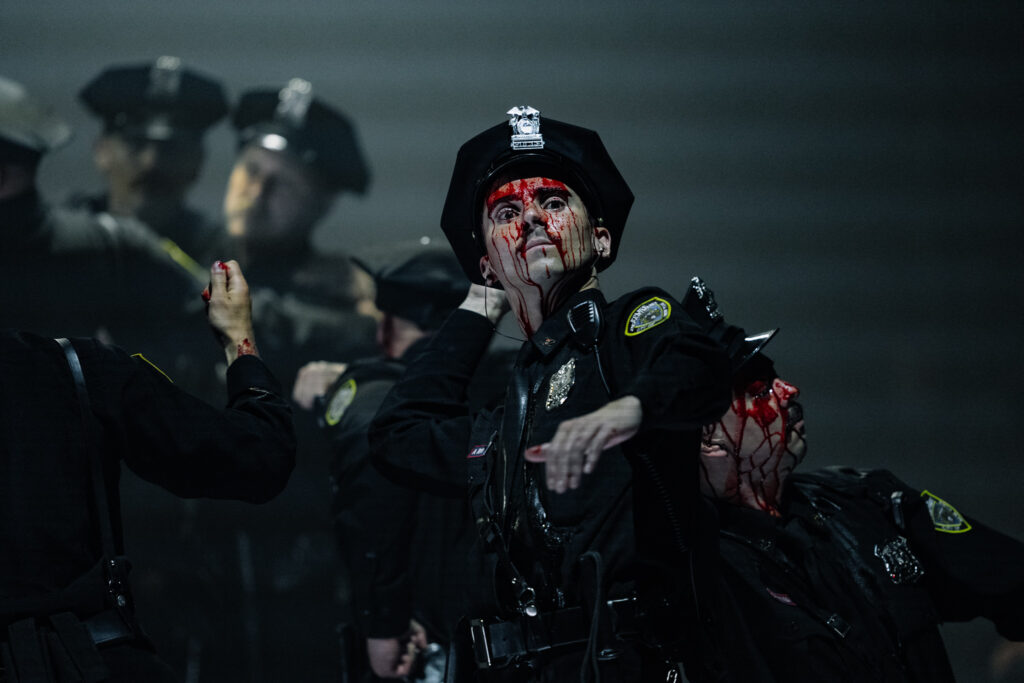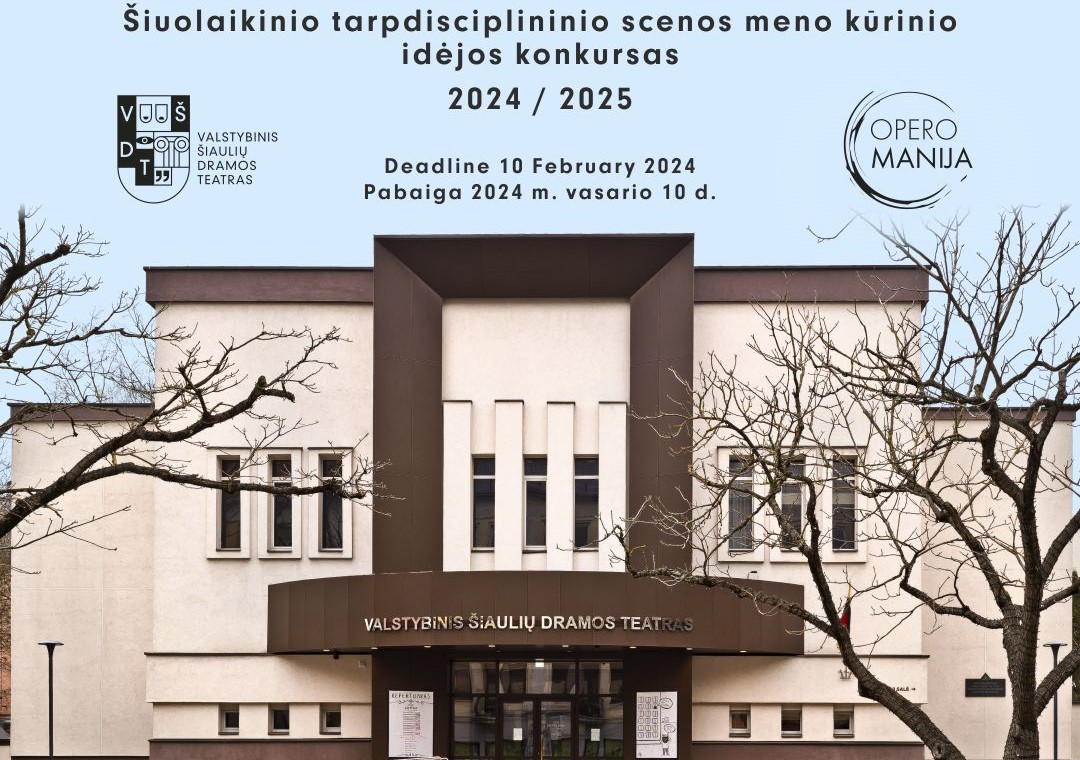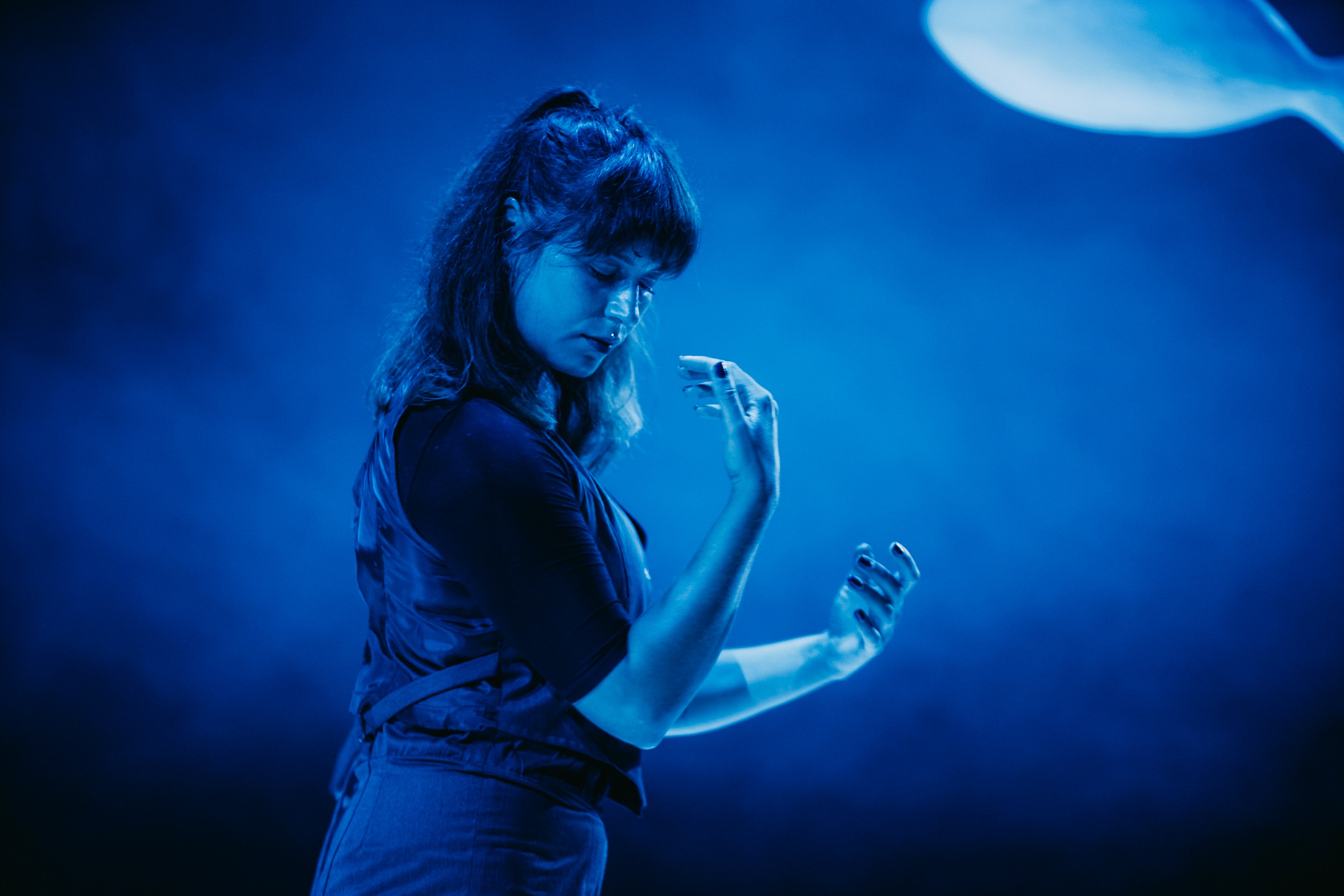Theatre may be discovered and a new language for expressing alternative theatre visions may be sought not only through unusual theatric forms, but also through the new dramaturgy. That's what the troupe of Klaipėda Youth Theatre, led by Valentinas Masalskis, attempted to do by inviting the journalist and poet Mindaugas Nastaravičius to work together on one of their first performances. His debut play for theatre was Dormitory of Poultry (2012). At the moment professional Lithuanian theatres feature at least six performances based on M. Nastaravičius texts. Last year for the plays Democracy and Your Suit Does Not Fit Me the playwright was awarded the Golden Stage Cross. The voice of this playwright is not only one of the newest, but it is also doubtlessly important. After long persuading he agreed to answer a few questions about the today's role of a playwright. Short and businesslike. No romance.
You started your journey as a playwright with a specific troupe, for specific actresses, you knew the exact arrangement. What were the biggest challenges of this school of theatre?
Yes, I wrote my first play knowing that the troupe consisted of eleven female actresses and one male actor. Truth be told, at first it seemed an impossible task to me - so many characters, so many people on the stage. I thought to myself “You must be joking?!” As strange as it may sound, I decided to abstain from creating, or, more precisely, to think only about the story, events, their logic, but leave out the characters. These I tool from real life - family members, acquaintances, etc. During the performance my sister was a little baffled having recognized her own manner of speaking.
When I write to a specific troupe, usually to one at the Klaipėda Youth Theatre, I know not only its formation, the age of actors, their professional capabilities, but also their specific requirements. We meet and we talk about what and why is interesting to them, we discuss the genre and the topic. So when I sit in front of a computer, ready to write, I know quite a lot already. On the other hand, later everything changes. When we start rehearsing, we notice weak spots of the play, undeveloped characters, etc. To summarize I must admit that writing for a specific troupe allows to view the creative process as continuous and ongoing even after the premiere.
In your opinion, what is the most important thing in communication between a playwright and the theatre?
Like in any other communication - openness, exactness. Nowadays the role of a playwright is not one-directional any more, he or she is not only the author of plays - I wrote it, you staged it, I watched it, bye bye! Today a playwright is also a person who works on texts that are born during the play's staging process, who discusses ideas with actors and the director.
When I am invited to create a performance, I expect to hear about exact expectations of why I am invited. Sometimes the director or actors simply need any playwright, sometimes they require exactly me. In this latter case those inviting me to cooperate are acquainted with my writing style and other subtleties of dramaturgy, so everything is simpler. Now in the former case anything might happen. Once an actor, having read a dialogue I had written specifically to him, said “We invited you expecting you to be a good playwright”. We said farewell to each other quite peacefully.
In quite a short time you tried out various roles of a playwright in theatre and in cinema. Which method of work is the most acceptable to you?
I'll answer differently - not which is the most acceptable, but rather which is not acceptable or the least inspiring. “Hello, I am such and such director, I want to make a performance about a son, a father and a grandfather. They all will be present on the stage at the same time, and, well, they will be talking about life. I already know how it all is going to be, I know everything, I only need someone to write the text.” So...
What could be the playwright's mission? Is it still necessary?
The playwright's only mission is to write, and write well. You should not waste time complaining that “nobody wants to stage me, I'm not interesting to anyone or nobody understands me”, you should simply learn, progress and write. When you think you already know how - persuade yourself that you don't and continue to learn. That's all. No romance.
You are not only an acclaimed playwright, but also a poet and a journalist. What position does theatre currently hold in your creative agenda?
My favourite contemporary playwright Martin McDonagh described the so-called acclaim as a probability that the director will find time to read your most recent play.
Despite several awards or other acknowledgments, I don't feel particularly acclaimed or that I had written something exceptionally grand. I face more failures and disappointment than, let's say, moments of creative satisfaction. What bothers me the most is that, having believed in my own talents, I wrote quite a lot of garbage, which (as an embodiment of myself) today I'm trying to fight. It needs both time and space. But it is interesting.

